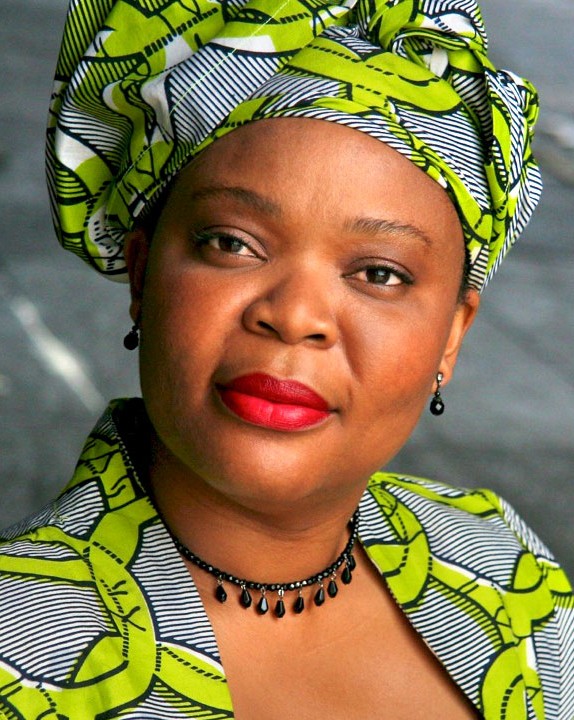Nobel laureate, women's advocate Gbowee to speak May 3
By Sheri Englund and Priya Pradhan
Leymah Gbowee, 2011 Nobel Peace Prize winner and activist, will give the annual Bartels World Affairs Lecture on Tuesday, May 3. She led an interfaith women’s peace movement that played a pivotal role in bringing warlords to the peace table and ultimately ending Liberia’s 14-year civil war in 2003.
Her talk, “Forging Lasting Peace: Movements for Justice in a Pluralist World,” begins at 5 p.m. in the Alice Statler Auditorium; a free ticket is required. In-person attendees will meet Gbowee at a book signing and reception with refreshments following the lecture. eCornell will livestream the event for national and international audiences, including alumni.
Hosted by the Mario Einaudi Center for International Studies and moderated by Chantal Thomas, a Global Public Voices fellow at Einaudi and Radice Family Professor of Law, this year’s lecture is part of the center’s work on inequalities, identities and justice. The event is co-sponsored by Einaudi’s Institute for African Development (IAD) and Reppy Institute for Peace and Conflict Studies, in cooperation with Peace is Loud.
Leading up to the lecture, IAD will host a free Cornell Cinema screening on Tuesday, April 26, at 7 p.m., of “Pray the Devil Back to Hell” (2008), a documentary about the women’s peace movement Gbowee led.
The lecture will explore what it takes to persist against long odds, build solidarity and work for transformative social and political change. Drawing on her experiences of mobilizing, demanding and brokering peace, Gbowee will share how action and activism can shape a more just world.
Gbowee spearheaded the grassroots Women of Liberia Mass Action for Peace movement, working alongside Ellen Johnson Sirleaf, who later served as Liberia’s 24th president and also received a Nobel Peace Prize in 2011. Gbowee is executive director of the Women, Peace and Security Program at Columbia University's Earth Institute, founder of the Gbowee Peace Foundation Africa and founding head of the Liberia Reconciliation Initiative.
Gbowee and the women in her resistance movement deployed a combination of modern and indigenous conflict management tactics to broker peace in Liberia, according to Naminata Diabate, associate professor of comparative literature in the College of Arts and Sciences, IAD steering committee member and author of the prize-winning book “Naked Agency: Genital Cursing and Biopolitics in Africa” (2020).
With an eye toward attracting international attention to their cause, the women’s protests included a sex strike and last-resort threats to strip naked. Diabate has published an explainer about the movement’s protest strategies and their impacts.
“The women’s protest tactics were effective because they refused to be muzzled,” Diabate said.
Gbowee’s visit to campus will extend through May 4 and include meetings with students and other university stakeholders, as well as the post-lecture book signing. Gbowee’s book, “Mighty Be Our Powers: How Sisterhood, Prayer, and Sex Changed a Nation at War,” is available for purchase at the Cornell Store and Buffalo Street Books.
“This is such an exciting, once-in-a-lifetime opportunity for students across campus to meet and be inspired by a Nobel peace laureate,” said Rachel Beatty Riedl, the Einaudi Center’s director and John S. Knight Professor of International Studies and professor in the Department of Government (A&S) and on the faculty of the Cornell Jeb E. Brooks School of Public Policy. “It is an opportunity to be uplifted by her message and methods and take it forward as the leaders of the next generation.”
Through the generosity of Henry E. Bartels ’48 and Nancy Horton Bartels ’48, the Einaudi Center’s Bartels World Affairs Lecture brings distinguished international figures to campus to speak on global topics and meet with Cornell faculty and students.
Priya Pradhan ’22 is senior writing intern and Sheri Englund is senior associate director of communication for Global Cornell.
Media Contact
Get Cornell news delivered right to your inbox.
Subscribe

